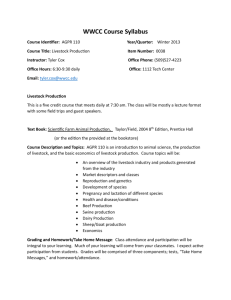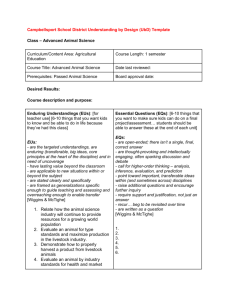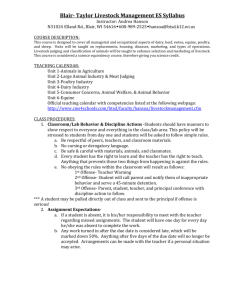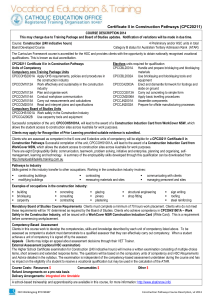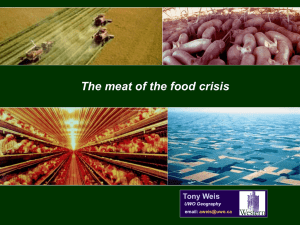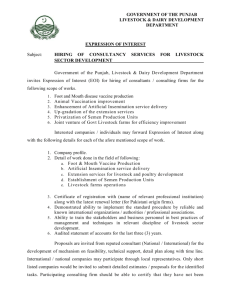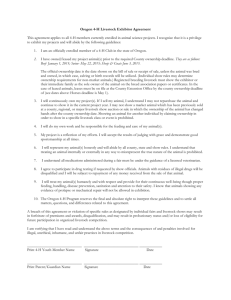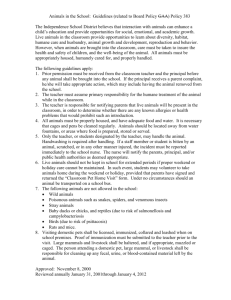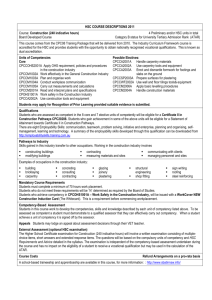VET Industry Curriculum Frameworks
advertisement
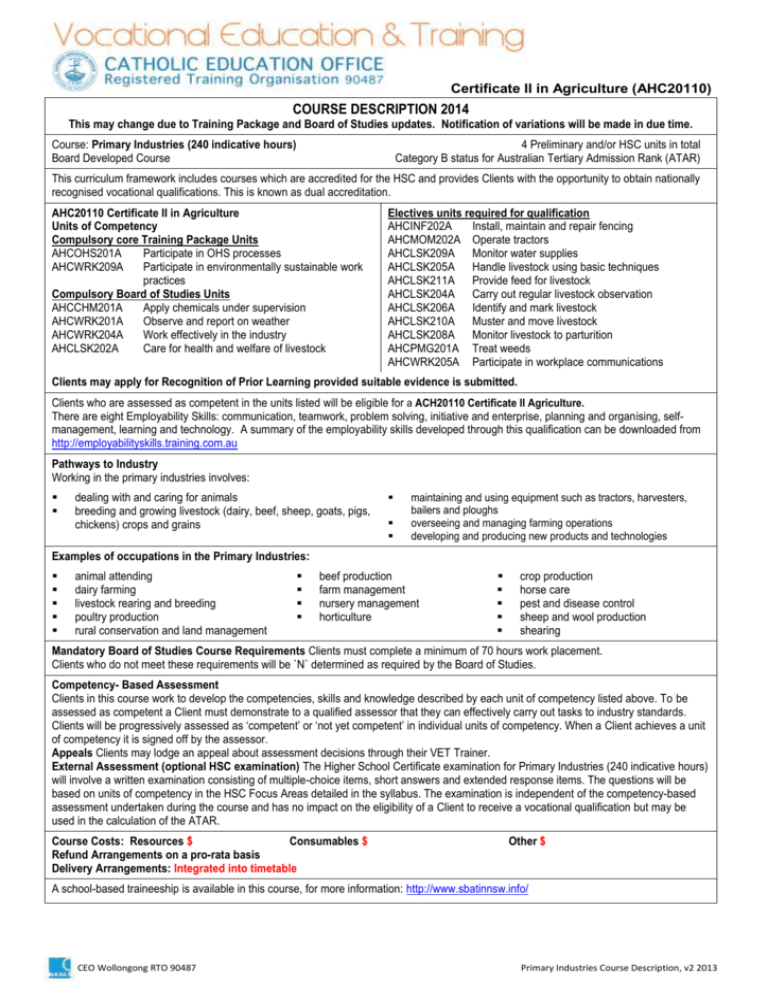
Certificate II in Agriculture (AHC20110) COURSE DESCRIPTION 2014 This may change due to Training Package and Board of Studies updates. Notification of variations will be made in due time. Course: Primary Industries (240 indicative hours) Board Developed Course 4 Preliminary and/or HSC units in total Category B status for Australian Tertiary Admission Rank (ATAR) This curriculum framework includes courses which are accredited for the HSC and provides Clients with the opportunity to obtain nationally recognised vocational qualifications. This is known as dual accreditation. AHC20110 Certificate II in Agriculture Units of Competency Compulsory core Training Package Units AHCOHS201A Participate in OHS processes AHCWRK209A Participate in environmentally sustainable work practices Compulsory Board of Studies Units AHCCHM201A Apply chemicals under supervision AHCWRK201A Observe and report on weather AHCWRK204A Work effectively in the industry AHCLSK202A Care for health and welfare of livestock Electives units required for qualification AHCINF202A Install, maintain and repair fencing AHCMOM202A Operate tractors AHCLSK209A Monitor water supplies AHCLSK205A Handle livestock using basic techniques AHCLSK211A Provide feed for livestock AHCLSK204A Carry out regular livestock observation AHCLSK206A Identify and mark livestock AHCLSK210A Muster and move livestock AHCLSK208A Monitor livestock to parturition AHCPMG201A Treat weeds AHCWRK205A Participate in workplace communications Clients may apply for Recognition of Prior Learning provided suitable evidence is submitted. Clients who are assessed as competent in the units listed will be eligible for a ACH20110 Certificate II Agriculture. There are eight Employability Skills: communication, teamwork, problem solving, initiative and enterprise, planning and organising, selfmanagement, learning and technology. A summary of the employability skills developed through this qualification can be downloaded from http://employabilityskills.training.com.au Pathways to Industry Working in the primary industries involves: dealing with and caring for animals breeding and growing livestock (dairy, beef, sheep, goats, pigs, chickens) crops and grains maintaining and using equipment such as tractors, harvesters, bailers and ploughs overseeing and managing farming operations developing and producing new products and technologies Examples of occupations in the Primary Industries: animal attending dairy farming livestock rearing and breeding poultry production rural conservation and land management beef production farm management nursery management horticulture crop production horse care pest and disease control sheep and wool production shearing Mandatory Board of Studies Course Requirements Clients must complete a minimum of 70 hours work placement. Clients who do not meet these requirements will be `N` determined as required by the Board of Studies. Competency- Based Assessment Clients in this course work to develop the competencies, skills and knowledge described by each unit of competency listed above. To be assessed as competent a Client must demonstrate to a qualified assessor that they can effectively carry out tasks to industry standards. Clients will be progressively assessed as ‘competent’ or ‘not yet competent’ in individual units of competency. When a Client achieves a unit of competency it is signed off by the assessor. Appeals Clients may lodge an appeal about assessment decisions through their VET Trainer. External Assessment (optional HSC examination) The Higher School Certificate examination for Primary Industries (240 indicative hours) will involve a written examination consisting of multiple-choice items, short answers and extended response items. The questions will be based on units of competency in the HSC Focus Areas detailed in the syllabus. The examination is independent of the competency-based assessment undertaken during the course and has no impact on the eligibility of a Client to receive a vocational qualification but may be used in the calculation of the ATAR. Course Costs: Resources $ Consumables $ Refund Arrangements on a pro-rata basis Delivery Arrangements: Integrated into timetable Other $ A school-based traineeship is available in this course, for more information: http://www.sbatinnsw.info/ CEO Wollongong RTO 90487 Primary Industries Course Description, v2 2013
